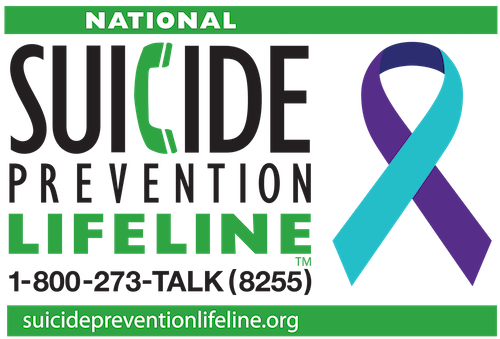Many sources offer assistance for preventing suicide

Today, suicide is an epidemic and mental health is on the decline, with 4.58 percent of adults in the United States reporting suicidal ideation and about 20 percent of children having been diagnosed with mental illness; 60 percent of youth with severe depression don’t receive the treatment they need to significantly improve their mental health, according to MHA National.
Peet Junior High counselor Rebecca Lins notices this often. “As a school counselor, I feel like it’s always at the forefront, but there are so many things to bring awareness to and do initiatives on,” she said. “I think awareness could be brought to so many issues that are a part of what leads to mental illness being more of an epidemic with our young people; that could include sleep deprivation, anxiety, depression, toxic stress, trauma, unhealthy friendships, relationships and more.”
With that said, here are a few things that negatively impact mental health, things that positively impact mental health, mental illness misconceptions and where to get help if needed, from Web MD, MentalHealth.gov, and Mind UK.
What can negatively impact mental health?
- Trauma and abuse
- Social isolation and loneliness
- Discrimination
- Poverty or homelessness
- Loss
- Long-term stress or physical health conditions
- Substance abuse
What can positively impact mental health?
- Set small goals to achieve each day
- Relax, reduce stress or meditate
- Spend time in nature or with other people, away from social media
- Take care of your physical health and avoid substance abuse
- Get adequate sleep (about eight hours each night)
What are some misconceptions about mental health?
- Myth: People with mental health problems are dangerous.
Fact: The most common mental health problems show no link to dangerous behavior.
- Myth: People with mental health needs can’t tolerate the stress of having a job.
Fact: People with mental illness have been reported as equally as productive, punctual and motivated as other employees.
- Myth: People with mental illness can fix their problems if they try hard enough.
Fact: Many people need help treating their mental illnesses, which can be caused by a variety of factors.
- Myth: Mental illness can’t be prevented.
Fact: Some mental disorders can be prevented by helping to improve a child’s emotional well-being from a young age.
- Myth: Therapy wastes time and money.
Fact: Each person is unique, so different treatments work for different people; this could include medication, therapy or both.
Where can people struggling with their mental health get help?
- Talk to trusted family or friends, but do not rely solely on them for help
- Make an appointment with a psychiatrist or therapist
- Call 1 (800) 273-8255: National Suicide Prevention Hotline
- In the event of an immediate health crisis, call 911









You must be logged in to post a comment Login